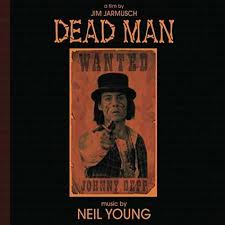CAYER DU CINEMA
Dead Man

"Dead Man," directed by Jim Jarmusch in 1995, is an American film that delves into political and historical aspects of Native Americans and the industrial revolution within a western genre. The narrative unfolds in a subjective manner, resembling a fairytale from Jarmusch's perspective. The film contrasts a society driven by capitalism with one based on culture and traditions, presenting conflicts between poverty and wealth, innocence and depravation, and life and death.
The film's black and white visual style already provides a stark contrast, further emphasized by the contrasting characters, such as Blake and Nobody, and thematic elements like existentialism versus loneliness. The repetition of the line "some are born to sweet delight, some are born to endless night" encapsulates the film's exploration of historical and individual conflicts, including those of poverty, innocence, and life.
Jarmusch uses symbols such as tobacco and poetry to represent capitalism and the sacred, respectively.
The movie critically examines the truth behind industrialization, capitalism, and land exploitation, offering a unique perspective on American history.
The main characters, portrayed by Johnny Depp and Gary Dale Farmer, represent protagonists, while Robert Mitchum and Angelo Nicotra play antagonistic roles. The film's editing, highlighted in a specific scene from (11.00) to (12.13), showcases Jarmusch's technical skills. The scene explores demythologized images of industrial modernity and aggression, employing tracking shots, varied camera angles, and a mix of diegetic and non-diegetic sounds to convey the bleak atmosphere and societal decay.
"Dead Man" serves as a powerful commentary on Native American history, industrialization, and capitalism, encapsulated in its contrasting themes and visual style.


